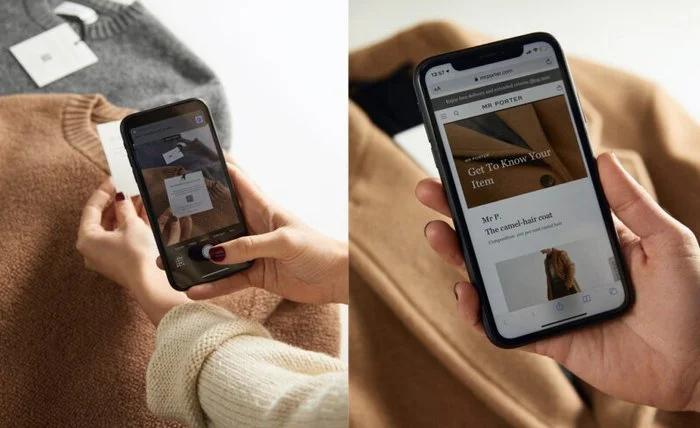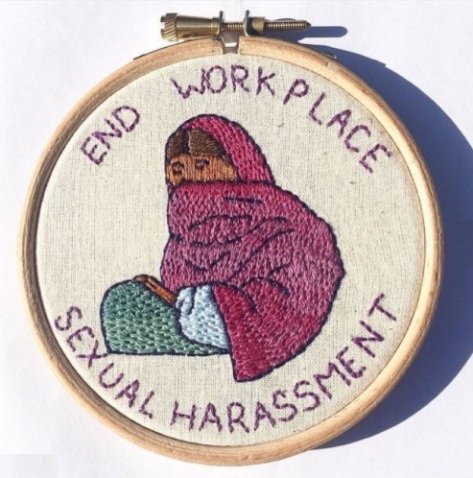The Titian Thread
The month in fashion, condensed.
Hey there,
As I write, it's getting warmer in London. The clocks have just changed so days are longer, lockdown is coming to an end, and I've had my first vaccination and first hot cross bun of the season – so things are looking up. But honestly, March has been exhausting, and it's a sentiment that I've seen shared the sustainable fashion community too.
A quick look at the comment section on this Instagram post by TV presenter Laura Whitmore, who recently announced a sustainability partnership with Primark, will tell you everything you need to know.
Sustainable fashion activists, writers, designers and enthusiasts are frustrated, angry and downright tired. Tired of fast fashion brands and their obvious greenwashing, of influencers and celebrities jumping on the 'sustainable' fashion bandwagon without doing their due diligence, tired of repeating what we already know: that fashion needs to slow down to survive.
Outrage is really hard to sustain, and I'm always so in awe of those activists, like the person behind one of my favourite Twitter accounts @ohsoethical, who spend their time calling out the bullshit and holding fashion brands accountable, especially when it's done through delightfully snarky Tweets:
Social media is a powerful tool all of us can use to connect with brands and ask them important questions about their worker's safety. They are reading our DMs and comments, and if enough voices speak up, it can't be ignored.
In April, there are lots of opportunities to take to social media and do your own bit of online activism, whether that's asking #WhoMadeMyClothes? during Fashion Revolution Week, or calling for Justice For Jeyasre tomorrow. More on that below. If you're feeling fed up with the state of fashion, it's an easy and surprisingly satisfying way to show brands that you care about the planet and the people making your clothes.
Until next time, hit the reply button to share your thoughts or feedback!
Meg X
Stories I Wrote
What Can Be Done About Fashion's Plastic Problem? for Toward.
It can be difficult to grasp the true scale of fashion’s plastic problem. Maybe it’s the “micro” in “microfiber," the innocuous-looking fluff you pull out of your dryer, or the largely unseen consequences of plastic-based textiles on the environment. The reality is that plastics are everywhere, from the food we eat to the top of Mount Everest, and much is still unknown about the true impact.
The Knitwear Brand Making Traceability Exciting, One Sheep at a Time for The Forward Lab.
Would you look at your favourite jumper in a different light if you knew the exact sheep who provided its wool? Would you care for it differently if you could go online and watch that sheep wandering around a field in New Zealand? This, in a nutshell, is the premise behind Sheep Inc.
These 6 Traceability Technologies Could Help Clean Up the Fashion Industry for EcoCult.
Traceability and transparency are vital for a sustainable and ethical fashion industry, but most fashion brands have no idea what goes on in their supply chains. These technologies can help fix that.
Stories I didn’t write
How Green are Your Leggings? Recycled Polyester is Not a Silver Bullet (Yet) by Lucianne Tonti for the Guardian. I've noticed a boom in activewear brands using recycled polyester (they'll often dumb it down by saying "X plastic bottles were used to make these") but is this material actually that sustainable?
What Has Biodiversity Got To Do With Fashion? by Emily Chan for British Vogue. A different kind of birds and the bees chat.
What is Going on with China, Cotton and All of These Clothing Brands? by Vanessa Friedman and Elizabeth Paton for New York Times. This explainer tells you everything you need to know about the situation going on in Xinjian, China.
The Fashion Debt Trap by Tansy Hoskins for Tribune. "Young people in Britain taking on debt to buy clothes is mirrored by people in the Global South being forced into debt in order to produce fashion," writes Hoskins.
Why Sewing Should No Longer Be Seen As Just 'Women's Work' by Lauren Bravo for Elle. "How do we fight for a more sustainable future and learn craft skills without betraying the women who put down their darning needles and took to the streets in the name of equality?"
The Fashion World Promised More Diversity. Here’s What We Found. by Vanessa Friedman, Salamishah Tillet, Elizabeth Paton, Jessica Testa and Evan Nicole Brown for the New York Times. A fascinating investigation into how far fashion has come since September 2020 in its diversity pledge. Turns out, nowhere near far enough.
The Sad Reality of Sustainable Fashion: ‘Exaggerated, False, or Deceptive’ by Maya Ernest for Input Magazine. "Brands are busy revealing sustainability initiatives, but it can be hard to tell which are actually legit. Now Instagram influencers are calling them out."
The To-Do List
It's been three months since 21-year-old Jeyasre Kathiravel, from Tamil Nadu in India, was raped and murdered by her supervisor at Natchi Apparel, a factory that supplies H&M.
Her family haven't received compensation, and H&M haven't agreed to put protections in place to prevent the women in their supply chain from being attacked.
April 1st is a day of action to pay respect to Jeyasre and demand an end to gender-based violence in the fashion industry. To learn how you can get involved in this important cause, click below.
April means Fashion Revolution Week! This year, I'm teaming up with one of my favourite charities the Graduate Fashion Foundation to create some really exciting content for this week of activism, including an interview with Fash Rev co-founder, Orsola de Castro. There are so many ways to get involved, from watching webinars and films to asking #whomademyclothes? to your favourite brands. It's all in the name of a fairer fashion industry.
I really enjoyed this episode of the Ethical Fashion podcast, featuring a chat with Virgil Abloh, founder/CEO of Off-White and artistic director of Louis Vuitton menswear. Discussing everything from his favourite Caravaggio painting to what he calls "mentoring by existance" this conversation is an insight into a fascinating creative mind. My favourite takeaway: "We don't get greatness out of anything less than optimism," says Abloh.






